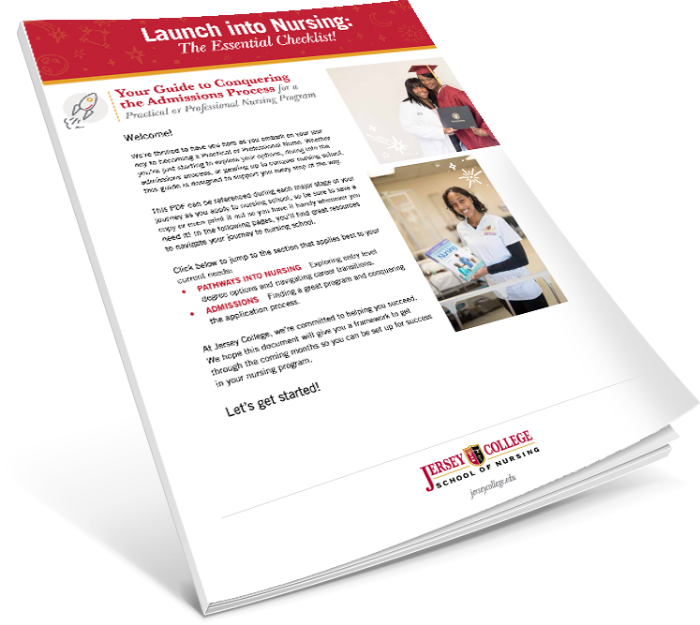
ADN vs. BSN: The Key Differences
Choosing a career in nursing is a decision to dedicate oneself to the care and wellbeing of others. When it comes to beginning your educational path toward becoming a Registered Nurse, there are two primary options: an Associate Degree in Nursing (ADN) or a Bachelor of Science in Nursing (BSN).
While both ADN and BSN programs prepare students to become Registered Nurses (RNs), the choice between the two depends on your career goals, time commitment, financial considerations, and other personal factors. This guide aims to illuminate the key differences and similarities between these two degrees, helping you make an informed decision about your future in nursing.
What Do ADN and BSN Mean?
ADN stands for Associate Degree in Nursing, a two-year program that provides the necessary skills and knowledge to start a career as a Registered Nurse (RN). On the other hand, BSN stands for Bachelor of Science in Nursing, a four-year degree that offers a more wide-ranging nursing education, including leadership and research components.
Both programs prepare students to become RNs, healthcare professionals who provide and coordinate patient care, educate patients about various health conditions and provide emotional support to patients and their families.
ADN vs BSN Curriculum
While both ADN and BSN degrees prepare students to meet entry-level nursing standards, the curriculum of each program varies. ADN programs focus on the technical skills needed for clinical practice. Students learn about patient care, anatomy, physiology, and pharmacology, among other topics.
BSN programs, on the other hand, build on these foundational skills with additional training in research, leadership, and public health. BSN students often have opportunities for additional clinical experiences in a wider variety of settings.
In addition, there are some general differences in the typical responsibilities between ADN-prepared nurses and BSN-prepared nurses:
- ADN nurses tend to focus on technical clinical tasks and day-to-day patient care
- BSN nurses may have more opportunities to pursue leadership roles and education enhancement pathways
Regardless of the degree, clinical experiences are a crucial part of the curriculum. These experiences provide students with the opportunity to apply what they've learned in the classroom to real-world situations, preparing them to pass the NCLEX® exam and become competent, caring nurses.

FREE Essential Guide to Nursing School: Get Accepted, Survive, and Thrive!
ADN vs BSN Salary Potential
While both ADN and BSN-prepared RNs earn competitive salaries, BSN-prepared nurses typically have a higher salary ceiling. This is often due to their ability to work in a wider variety of healthcare settings. However, it's important to note that salaries can vary widely depending on location, years of experience, specialty area, and other factors.
RN Salary by Percentile
| Percentile | Annual Salary |
|---|---|
|
Top 10% |
$132,680+ |
|
Median |
$86,070 |
|
Bottom 10% |
$63,720 |
Source: U.S. Bureau of Labor Statistics
Job Outlook and Career Advancement
The demand for nurses is expected to grow significantly in the coming years.
According to the Bureau of Labor Statistics, approximately 194,500 new jobs are projected to open each year between 2023 and 2033 for registered nurses. Employment for registered nurses is projected to grow by about six percent during that time.
The aging population, increased access to healthcare services, and ongoing medical advancements all contribute to this increasing demand. BSN-prepared nurses often have more opportunities for career advancement due to their wide-ranging education. They may move into leadership roles, specialize in areas such as pediatrics or oncology, or pursue advanced degrees to become nurse practitioners or nurse educators.
However, ADN-prepared nurses also have a positive job outlook and can specialize in a variety of nursing fields.
Making the transition from ADN to BSN
Many nurses start with an ADN and then choose to pursue a BSN or higher degree while working. This allows nurses the opportunity to get into the workforce and gain valuable real-world experience while working toward a higher degree and increased earning potential. At Jersey College, we partner with several institutions across the country to facilitate this transition. Learn more about our partner organizations on our Affiliations page.

Sign up to get new articles in your inbox and stay updated on our nursing programs.
Benefits of a Nursing Degree
Whether you choose an ADN or a BSN, a nursing degree offers many benefits.
- Personal fulfillment: First and foremost, nursing is a rewarding career that allows you to make a difference in people's lives every day. Nurses are often on the front lines of healthcare, providing critical care to patients and support to their families.
- Financial reward: In addition to personal fulfillment, nursing can offer a strong financial foundation. Both ADN and BSN-prepared nurses can be eligible to earn competitive salaries, and the demand for nurses means job security.
- Career opportunities: Nursing offers a wide variety of career paths. With either an ADN or BSN, you may be able to work in a range of settings, from hospitals and clinics to schools and community health centers. You can also choose to specialize in areas such as pediatrics, critical care, oncology, or mental health.
Frequently Asked Questions
- Is it worth getting an ADN?
Absolutely. An ADN is a quicker path to becoming an RN and allows you to start your nursing career sooner. It's also typically less expensive than a BSN program. Many nurses start with an ADN and then choose to pursue a BSN or another higher degree while working.
Learn more about nursing with an Associate's Degree.
- Do ADN and BSN-prepared nurses take the same NCLEX® exam?
Yes, both ADN and BSN-prepared nurses take the same NCLEX® exam to become licensed RNs. The exam tests the knowledge and skills necessary to practice safely and effectively as an entry-level nurse.
- Is an ADN or BSN degree better for preparing for the NCLEX® exam?
Both degrees provide the necessary NCLEX® exam preparation. At Jersey College, we pride ourselves on our strong NCLEX® pass rates among graduates.
Find Your Campus
Based on the success of our programs, we have grown to serve communities in 7 states (and counting!). Find a campus near you to start your NurseLife.

FREE Essential Guide to Nursing School: Get Accepted, Survive, and Thrive!
